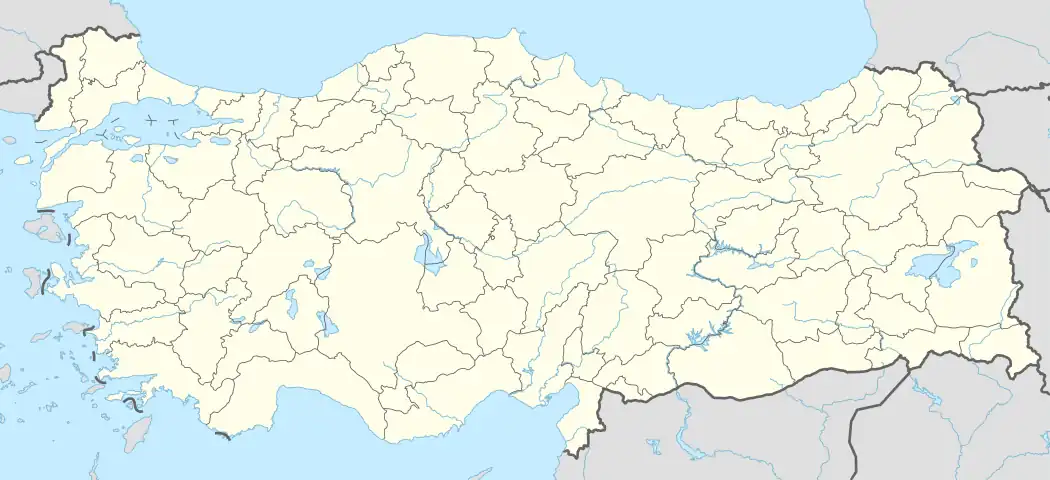Akbez | |
|---|---|
 Akbez Location in Turkey | |
| Coordinates: 36°51′N 36°31′E / 36.850°N 36.517°E | |
| Country | Turkey |
| Province | Hatay |
| District | Hassa |
| Elevation | 614 m (2,014 ft) |
| Population (2022) | 10,228 |
| Time zone | TRT (UTC+3) |
| Postal code | 31700 |
| Area code | 0326 |
Akbez is a neighbourhood of the municipality and district of Hassa, Hatay Province, Turkey.[1] Its population is 10,228 (2022).[2] Before the 2013 reorganisation, it was a town (belde).[3][4]
Geography
Akbez is situated at the extreme north of the province where the road from Kilis Province intersects the main highway running from north to south. It is 7 kilometres (4.3 mi) from Hassa.
History
Akbez township was established in 1972 by merging the two villages of Salmanuşağı and Nuhuşağı. During the early years of the Turkish Republic these villages were in the Province of Cebeli Bereket. After this province was abolished in 1933, the villages were made a part of Gaziantep Province. But after the Hatay Republic was merged into Turkey in 1939, the villages as well as the rest of Hassa were made a part of Hatay Province.
Demographics
During German traveler Martin Hartmann's visit, the Ottoman nahiyah of Ekbez had 8 villages with 6 being Turkish (132 houses), 1 being Turkish majority and Armenian minority (30 houses), and 1 being Armenian and Turkish plurality (50 houses).[5]
Economy
The main agricultural products are grapes, cotton, soybean and olive. There are two olive oil press facilities in the town.
References
- ↑ Mahalle, Turkey Civil Administration Departments Inventory. Retrieved 19 September 2023.
- ↑ "Address-based population registration system (ADNKS) results dated 31 December 2022, Favorite Reports" (XLS). TÜİK. Retrieved 19 September 2023.
- ↑ "Law No. 6360". Official Gazette (in Turkish). 6 December 2012.
- ↑ "Classification tables of municipalities and their affiliates and local administrative units" (DOC). Official Gazette (in Turkish). 12 September 2010.
- ↑ Hartmann, Martin (1894). Das liwa Haleb (Aleppo) und ein Teil des Liwa Dschebel Bereket. Berlin: W. Pormetter. p. 105. Retrieved 30 November 2022.